ACE 2026 - The home of global charter.
 The bimonthly news publication for aviation professionals.
The bimonthly news publication for aviation professionals.
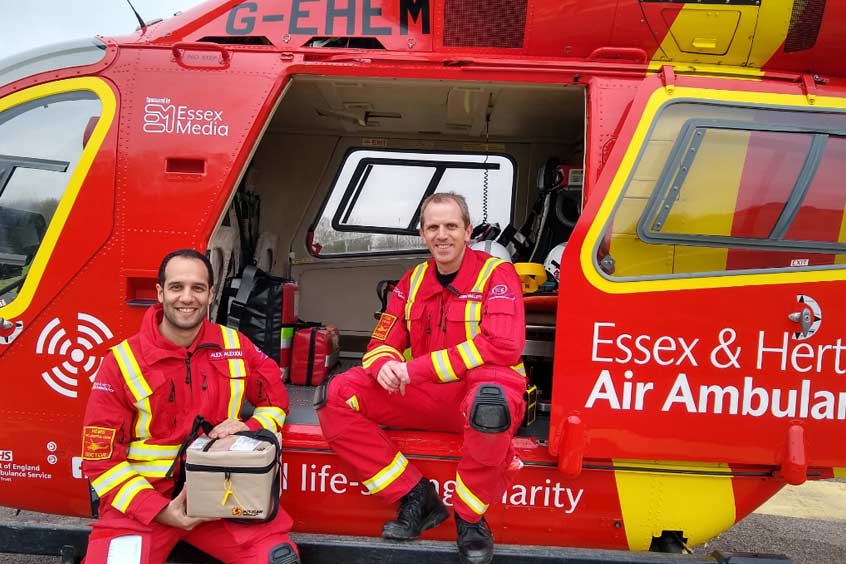

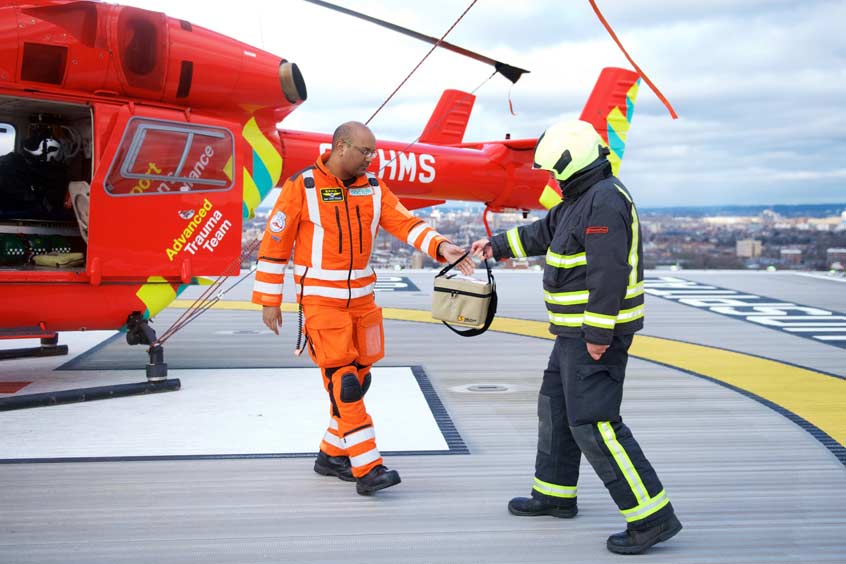
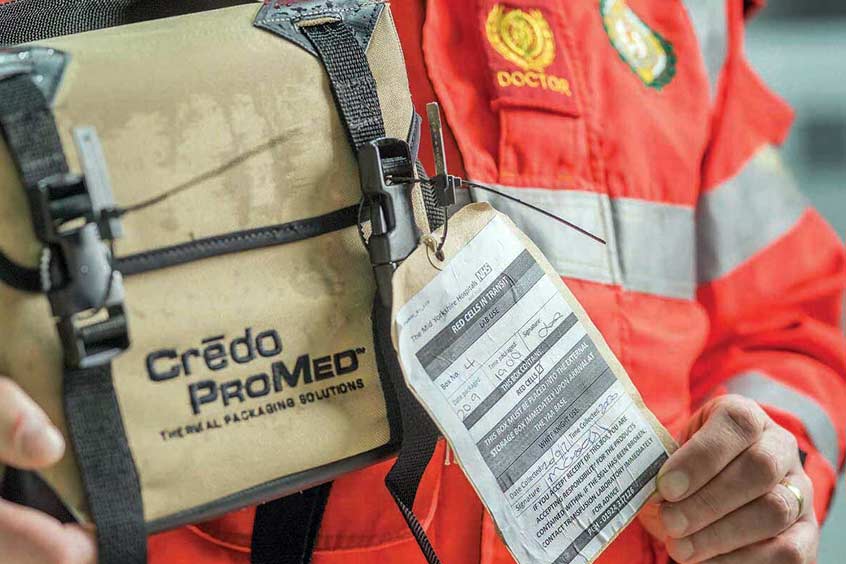
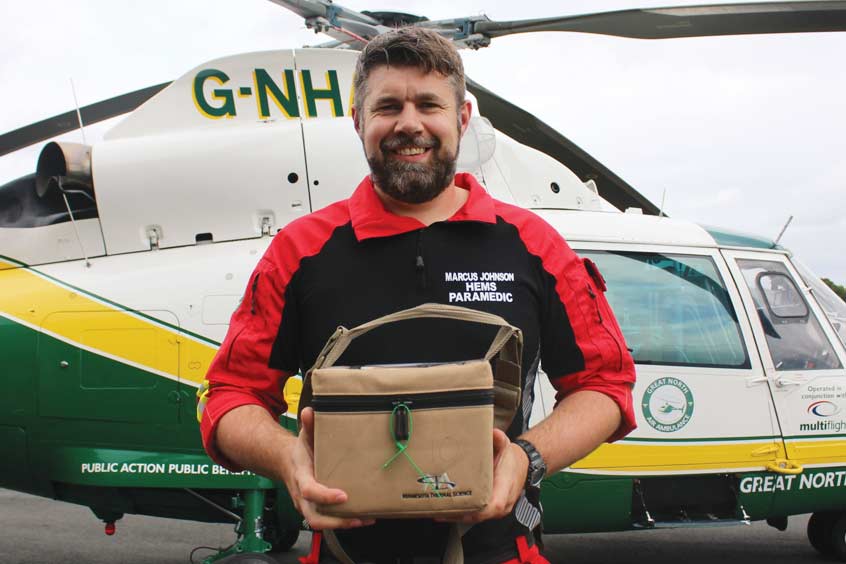
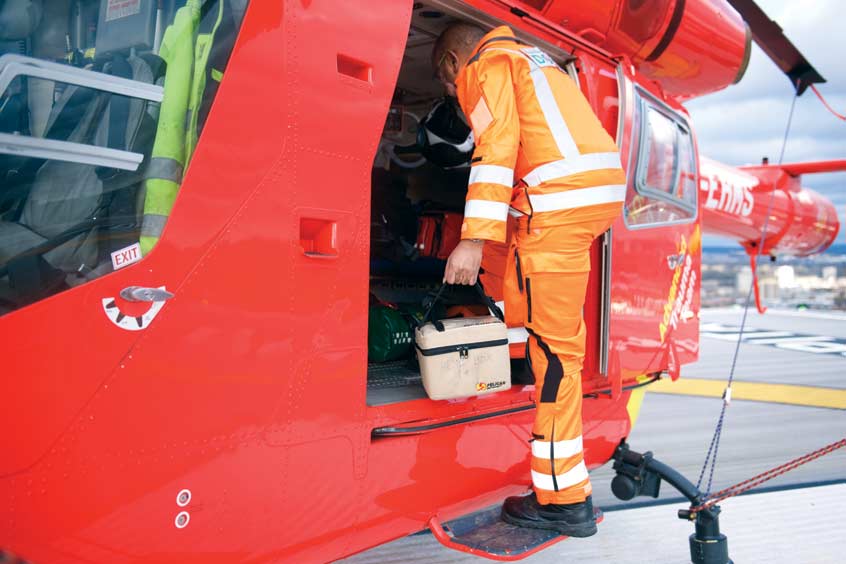
Air ambulance crews across the UK, including EHAAT and Yorkshire, are transporting vital blood products via Peli BioThermal's Crēdo ProMed transport bag, in a bid to save more lives.
The bag is designed to protect health sciences products, ensuring lifesaving blood products can be used at the scene of emergencies, delivering critical pre-hospital care. Being able to give a transfusion at the scene of an incident could be a lifesaving intervention for patients suffering significant bleeding and blood loss.
One of the latest air ambulance charities carrying blood in Crēdo ProMed products is Essex & Herts Air Ambulance (EHAAT) in the UK. It joins the growing number of air ambulance charities already deploying Crēdo ProMeds on board aircraft, including Great North Air Ambulance Service, London's Air Ambulance Charity and Yorkshire Air Ambulance.
EHAAT carries blood supplies on board its helicopters and rapid response vehicles (RRVs). Since introducing blood on board it has carried out 48 transfusions. Scott McIlwaine, operations manager, says: “The decision to start carrying blood products on board our helicopters and RRVs was a major one for the charity, one that has significantly improved the care that can be delivered to patients.
“It was important for us to make sure that our critical care teams had the right equipment. That includes containers to ensure the blood is stored, transported and the correct temperature is maintained in the field for periods of up to 24 hours. After comprehensive research we selected Peli BioThermal Crēdo ProMed transport bags and they have never let us down."
EHAAT's helicopters and RRVs carry packed red blood cells of type O Negative, meaning they can be used on any patient. When required, these are given with plasma, the other major component of human blood. Together these form a vital replacement for patients who have lost blood.
Dr Anne Weaver, consultant in emergency medicine and pre-hospital care with London's Air Ambulance, says: “When we arrive at the scene of a serious incident, we often find a patient losing a significant amount of blood. In these cases every second counts and we see the vital importance of being able to deliver transfusions on the scene, any time of the day or night.
“After extensive validation carried out with the transfusion team at Barts Health NHS Trust, we found the Crēdo ProMed transport bags to be the most suitable and have used them ever since. Carrying blood on board our aircraft and in our rapid response cars has undoubtedly been a big change, and we continue to innovate to create the next generation of survivors in the capital.”
Since blood on board was introduced by Great North Air Ambulance Service (GNAAS) crews have administered more than 300 transfusions with the help of the Crēdo ProMed transport bag. Andy Mawson, GNAAS director of operations, explains: “To those patients who need them, transfusions are a vital lifeline which only a few years ago would not have been available outside of hospital.
“Without the right kit in place to protect those precious blood and plasma products, the procedure would be futile. We use these transport bags and they've never let us or our patients down.”
Yorkshire Air Ambulance utilises Crēdo Cube and Crēdo ProMed. Medical advisor Jez Pinnell comments: “In 2019, the Yorkshire Air Ambulance gave 28 patients' transfusions at the scene of an incident. Crēdo ProMed is a vital piece of equipment that ensures that the blood is thermostatically controlled and thoroughly protected at all times, so it is ready immediately for critically ill patients where every minute counts.”